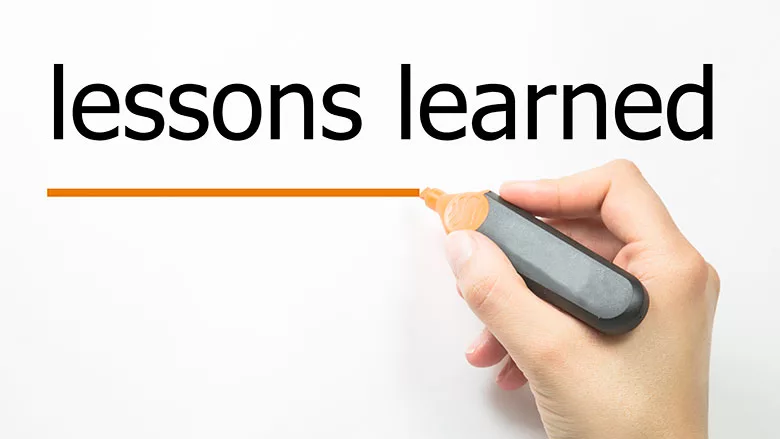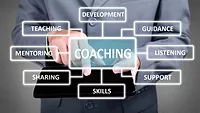How Restoration Pros Can Find Strength in Overcoming Failure

Photo credit: magical_light / iStock / Getty Images Plus via Getty Images
Several years ago, The Pursuit of Happyness was released, a movie based on the true story of Chris Gardner, a struggling salesman and father who faced financial difficulty and homelessness while trying to provide a better life for his young son. His journey was filled with failures, including losing his job, being evicted from his apartment, and facing the challenges of being a single parent. Throughout it all, he refused to give up on his dream of becoming a stockbroker.
Gardner’s story is an inspiring example of resilience and determination, serving to show how setbacks and failures can be stepping-stones to success if we remain dedicated and refuse to let obstacles define our future.
Many people make the mistake of thinking that failure means they should give up or that they were never meant to succeed. This is wrong! Failure can be one of the best things to happen to us on our path to success. Consider the invention of the light bulb. It took Thomas Edison thousands of attempts to get it right. Each failure was a step closer, eliminating possible solutions and guiding him toward the correct answer.
Admittedly, this doesn’t make it much easier to handle how we feel when confronted with failure. Dealing with it can be emotionally challenging and may feel like defeat or make us want to give up. Maybe we even wallow in it for a bit.
But each time we step back from a failure, we have the opportunity to figure out what went wrong, learn from it, and move forward in a new direction. Armed with the knowledge of what DOESN’T work, we will be stronger, smarter, and braver. Each time we do this, we narrow down the possibilities until we find the way that works. Each time we fail, we increase our odds of winning.
Think of a toddler learning how to walk. Although they have a fair share of falls during the learning stage, they pull themselves up after each one and try to walk again. Instinctively they’re teaching themselves how to perfect the movement, all based on their past failures. They are learning what doesn’t work.
A very common (and almost expected) part of the college experience is for a student to start school with the intent of getting a particular degree, but as they go through their course work, having their successes and failures, they discover a new career interest and change their major. Rather than stick with a degree or career that doesn’t suit them and may even set them up for future failures, they learn from the failed choice and make a decision that suits them better.
As long as we’re able to learn from our mistakes, then they’re not mistakes at all—they are opportunities for success. There’s always something to learn from each and every situation and once we understand the lesson and use it to adjust our course, we gain strength and wisdom.
Failing allows us to become more resilient, stronger, and smarter so we can figure out a way to move forward when things don’t go our way. And this will happen to all of us. The only way to avoid failure is to never try anything. In the words of J.K. Rowling, "It is impossible to live without failing at something, unless you live so cautiously that you might as well not have lived at all—in which case, you fail by default."
So, you had a failure. No time to wallow in it, there are lessons to be learned!
Reflect and Self-Analyze
Take some time to consider what went wrong and why the failure occurred. Be honest with yourself about your role in the situation. Think about what you could have done differently, what outside factors you hadn’t considered, and what you learned from the experience.
Set New Goals and Action Plans
Once you've analyzed the failure, set a new course. Use the lessons learned to refine your approach. Resist the urge to pause or “let it rest.” Once you have evaluated and reflected on what when wrong, get started down the new path.
Seek Support and Stay Positive
Talking about your failure can provide emotional relief and valuable perspectives. Reach out to friends, family members, mentors, or a support network to share your experiences and feelings. Surround yourself with positive influences and people who believe in your abilities. Their encouragement can help you regain your confidence. If you don’t have people like this now, work on developing these types of relationships.
Remember that failure is a natural part of life and personal development. Our response to failure and what we do next defines our character and determines our future successes. We should embrace failure as a teacher, use it to our advantage, and keep moving forward toward our goals. During the journey, we should remind ourselves that setbacks and failures are not dead ends, but rather, stepping-stones to success. Each setback is a valuable lesson, a chance to become wiser, stronger, and more resilient. Success is not about avoiding failure but about learning from it and persevering.
Embrace failure as a teacher and let it guide you toward your ultimate success.
Looking for a reprint of this article?
From high-res PDFs to custom plaques, order your copy today!








